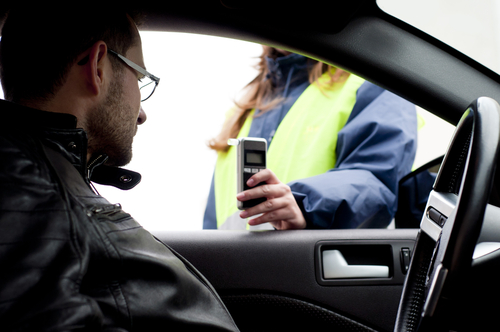You’ve probably heard the Miranda warning before. You can’t watch a crime show or movie with police that doesn’t have someone reciting them during an arrest. However, the reality of these situations isn’t the same as what you might see and hear on your TV screen. If you are pulled over and arrested for DUI in California, your case will not be withdrawn just because the officer failed to read you your Miranda rights. The truth is, when it comes to DUI charges, the Miranda warning is not as important as it is for most other charges.
According to the 5th Amendment of the constitution, every suspect has the right to remain silent. Here is the Miranda warning in its entirely, which is often shortened for television:
“You have the right to remain silent. Anything you say can and will be used against you in a court of law. You have the right to an attorney. If you cannot afford an attorney, one will be provided for you. Do you understand the rights I have just read to you? With these rights in mind, do you wish to speak to me?”
Any confessions that are made without the suspect being read the Miranda warning is not admissible. It cannot be considered voluntary if they have not been made aware of their right to remain silent. Two things must happen for a court to toss out a confession as a result of a failure to provide a Miranda warning. The first is that the suspect is in custody. The second is that there is an interrogation. If these two conditions are met, then Miranda rights must be made clear.
When it comes to DUI charges, however, it is rare for there to be an actual interrogation. A police officer may ask several questions, such as how much the driver had to drink, or where they are coming from. These questions are not considered part of an interrogation, since they are in fact investigating what took place. This means that during this period you are not protected by Miranda rights.
Your best option is to decline to answer any questions, even the investigative ones. You can also decline to take any sobriety tests, such as the ones that involve walking in a straight line or touching your nose. The police know that these tests are not reliable, and are in fact designed for people to fail them. What some people mistakenly do is refuse to take a chemical test like a blood test or a breath test at the station. This is what the DMV calls a refusal case. While you have the right to deny these tests there can be consequences such as losing your drivers license. People also mix up the breath chemical test with the PAS, the preliminary alcohol screening test. The PAS is a smaller device that officers ask you to blow in at the scene of the arrest as part of their investigation. The chemical test which includes a blood test can also be a breath test with a larger machine used at the police station.
When arrested for DUI, or for anything else, never forget that it’s always better to remain silent. Tell the officer that you do not want to answer any questions, and contact a reputable DUI defense lawyer as soon as you can. If you’re facing criminal charges, and don’t already have a lawyer give us a call, or email our office today, we can help!

